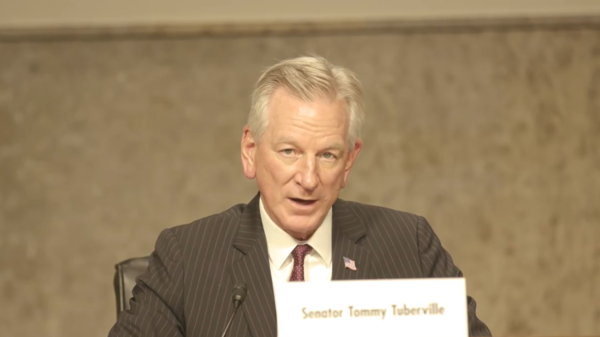U.S. District Judge Liles Burke on Friday renewed his order for some of the nation’s top LGBTQ civil rights attorneys to produce a privileged document or face sanctions.
Burke previously ordered 11 attorneys involved in a lawsuit against Alabama’s law criminalizing gender-affirming care to produce a privileged “Q&A document” prepared to assist the attorneys defending themselves in an allegation of improper judge-shopping.
Burke had given the attorneys just one business day to turn over the document, without any opportunity for the defense to file a response, or face sanctions that could have included detainment by U.S. Marshalls.
The move prompted the attorneys to briefly file a motion for mandamus relief with the 11th circuit; however, the attorneys rescinded that motion as Burke delayed the requirement to produce the document and allowed the defense to brief the court on its opposition to producing the document.
Burke argues that the “crime fraud exception” could allow the court to pierce privilege, but the attorneys say there is no evidence that the document was prepared in furtherance of a fraud upon the court. The document has been known by the court for years, and while a three-judge panel of district judges previously ordered one defendant to produce the document during its investigation of the judge-shopping allegations, the court respected defendants’ refusal to do so on grounds of privilege and did not press the matter further.
Burke argues that the court can review the document in camera, meaning that it would not be admitted as evidence unless the court finds that the crime fraud exception does apply. If it does not apply, Burke said he will simply disregard it.
The attorneys argue that since Burke is the ultimate fact-finder in the case, it would be impossible to “put the toothpaste back in the bottle” if he views the document in camera, even if he determines it should not influence his decisions.
The three-judge panel issued a nonfinal report that found the 11 attorneys did improperly judge-shop, although the lawyers have denied acting outside the scope of law.
The judge-shopping allegation is based on the complicated filing history of the case, now known as Boe v. Marshall. The lawyers initially filed multiple suits in both the middle and Northern districts of Alabama. The lawyers had tagged one suit as a related case to another case under Myron Thompson that could have come back up under appeal.
A series of unusual instances led the suits to be assigned to Burke, a Trump appointee who lawyers saw as a bad draw for the case. According to court documents, the attorneys saw this assignment as suspicious because the case was reassigned to Burke without motion from either party. Court filings reveal the unusual assignment came because of the original judge’s schedule, but the attorneys say they were unaware of that reasoning at the time.
Regardless, attorneys say that Rule 41 allows them to dismiss a lawsuit at any time for any reason, meaning they did nothing wrong when they dropped the suit assigned to Burke and refiled. The case still went to Burke, on the basis that it was related to the cases that had been assigned to Burke for just one day before the attorneys withdrew them.
Burke actually ruled that the plaintiffs are likely to succeed on the merits of their challenge to the law, enjoining the state’s ban on gender-affirming care. The 11th Circuit has since reversed that injunction, allowing the law to take effect.





















































